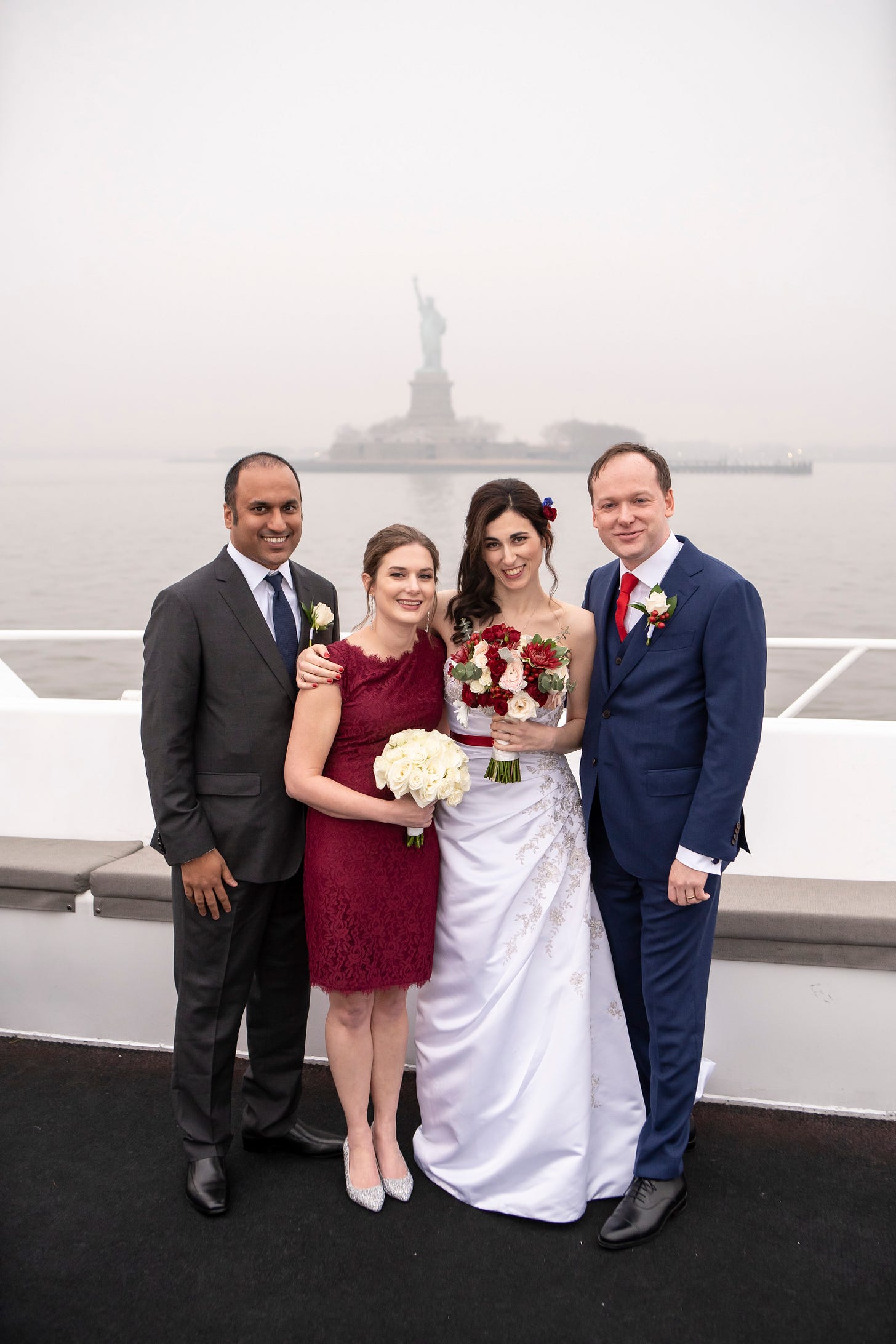Wanting It All, or Nothing at All: A Case for Being 'Married to your Work'
Full transcript of Founder's Mindset episode ft. Ray & Rebecca Girn
In last week’s episode of the Founder’s Mindset podcast, I got to interview 2 of my dearest friends, Ray and Rebecca Girn, about their experience as married founding members of Higher Ground Education—a company to which I, too, have married my fate in more ways than one.
As case-in-point, here are Ray and Rebecca marrying me off to another founding member of their company, Matt Bateman, with whom I’ve since had a child who attends one of Higher Ground’s schools right alongside Ray and Rebecca’s own 3 children (as our forthcoming second child is also set to do):
So yeah: this conversation felt as personal as it was professional. More than that, it called into question whether there even is—or ought to be—any meaningful distinction between the two.
Listen to the full episode on any of these podcast platforms:
…or just read the transcript below. By popular demand, and because there’s no part I’d want to cut, I’ve reproduced it here in full.



